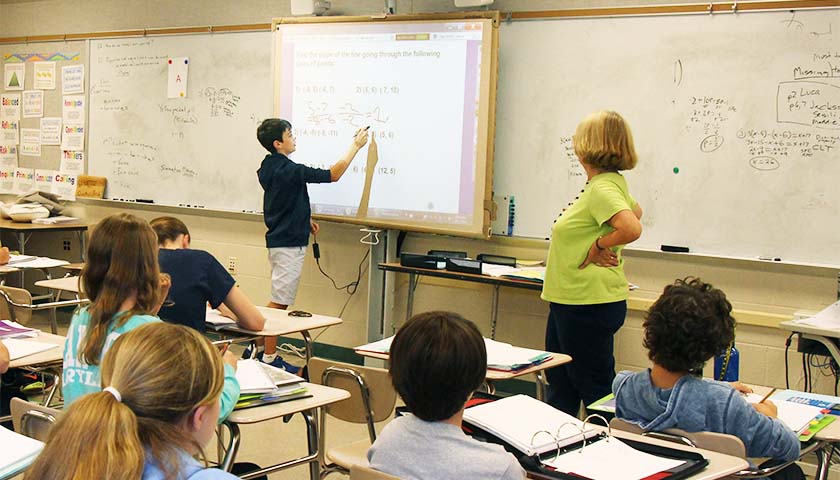by Angela Morabito
This school year, colleges around the country will teach students to use math to drive a “social justice” agenda. Campus Reform has found several courses, aimed both at math students and future teachers, that will teach math through social justice and social justice through math.
Central Washington University’s “Mathematics for Social Justice,” identified by Twitter user @OrwellNGoode, purports to teach students how, and why, to use math for social justice activism. The course description says, “The overarching goal of this course is for students to develop the ability and inclination to use mathematics to understand, and improve, the world around us, exploring social, political, and economic justice.” Students will use math and analysis to “draw conclusions concerning social justice issues,” “make and evaluate assumptions in a social justice context,” and “analyze and critique social justice claims and arguments.”
Bates College will also offer “Mathematics for Social Justice” in the spring of 2022. The course’s stated goals are similar to those of the course at Central Washington University. According to the course catalog, students who enroll can expect to “use mathematics as a powerful analytic framework for understanding and developing realistic solutions to issues of social, political, and economic justice.”
Swarthmore College will offer a similar course in the spring, titled “Mathematics and Social Justice.” Its course description is more politically charged than most: The class purports to “[examine] the roles that mathematics and mathematicians play in society, particularly through the lenses of equity and social justice.” Swarthmore also gets specific about the topics to which students will apply math, which include “policing, politics, healthcare, and the military-industrial complex.”
Other colleges are home to social justice courses geared toward current and future math teachers. The University of West Georgia offers “STEM Math for Social Justice” this semester, which trains teachers to teach social justice math to their preschool through high school students. The course is offered through the College of Education. According to the course description, students will examine “STEM education…through the lens of social justice, equity, and community-based learning.”
The course is one of four that count toward a STEM Endorsement, a credential that, when earned, is added to the recipient’s teaching certificate to signify that the teacher is capable of “using the principles of STEM education in their teaching practice.” The University of West Georgia requires students to take the course in order to earn the STEM Endorsement; another required course is “STEM Investigations through Ecojustice.”
Like the University of West Georgia, Fresno Pacific University is also training teachers to use”‘social justice” math in their classrooms. Those who enroll in the self-paced online course will be taught “specific strategies for engaging students in mathematics lessons and activities built around social justice issues, such as healthy eating, living wages around the world, access to clean water or fair trade.” Participants will also learn why math lessons should include social justice. The course descriptions states that students will “explore the rationale for integrating critical issues into mathematics curriculum.” They will also “plan and implement effective social justice lesson plans,” per the course syllabus.
These colleges are not the first to train teachers to push social justice into their math lessons. Such training programs date back to at least the summer of 2019, when the University of Nebraska offered “Teaching Mathematics for Social Justice” as part of its Math & Science Summer Institutes. Now, courses like it are proliferating across the country.
– – –
Angela Morabito is a Higher Education Fellow and Spokeswoman for Campus Reform. She is the former Press Secretary for the U.S. Department of Education, where she went head-to-head with the Left, the media, and the teachers’ unions on behalf of the Trump administration and former Education Secretary Betsy DeVos. In that role, she communicated to the press and the American public on all facets of education policy, with emphasis on academic freedom, students’ civil rights, and the student loan debt spiral. Before her appointment as Press Secretary, Angela worked in public affairs, digital media, and higher education administration. She has authored opinion pieces for the Washington Examiner and The Federalist. Red Alert Politics named her to the “30 Under 30” conservatives to watch in 2016. Angela graduated cum laude from Georgetown University’s Walsh School of Foreign Service and later earned a Master’s degree, also from Georgetown, with particular focus on politics, culture, media, and ethics.
Photo “Performing in Middle School Math Class” by woodleywonderworks. CC BY 2.0.








